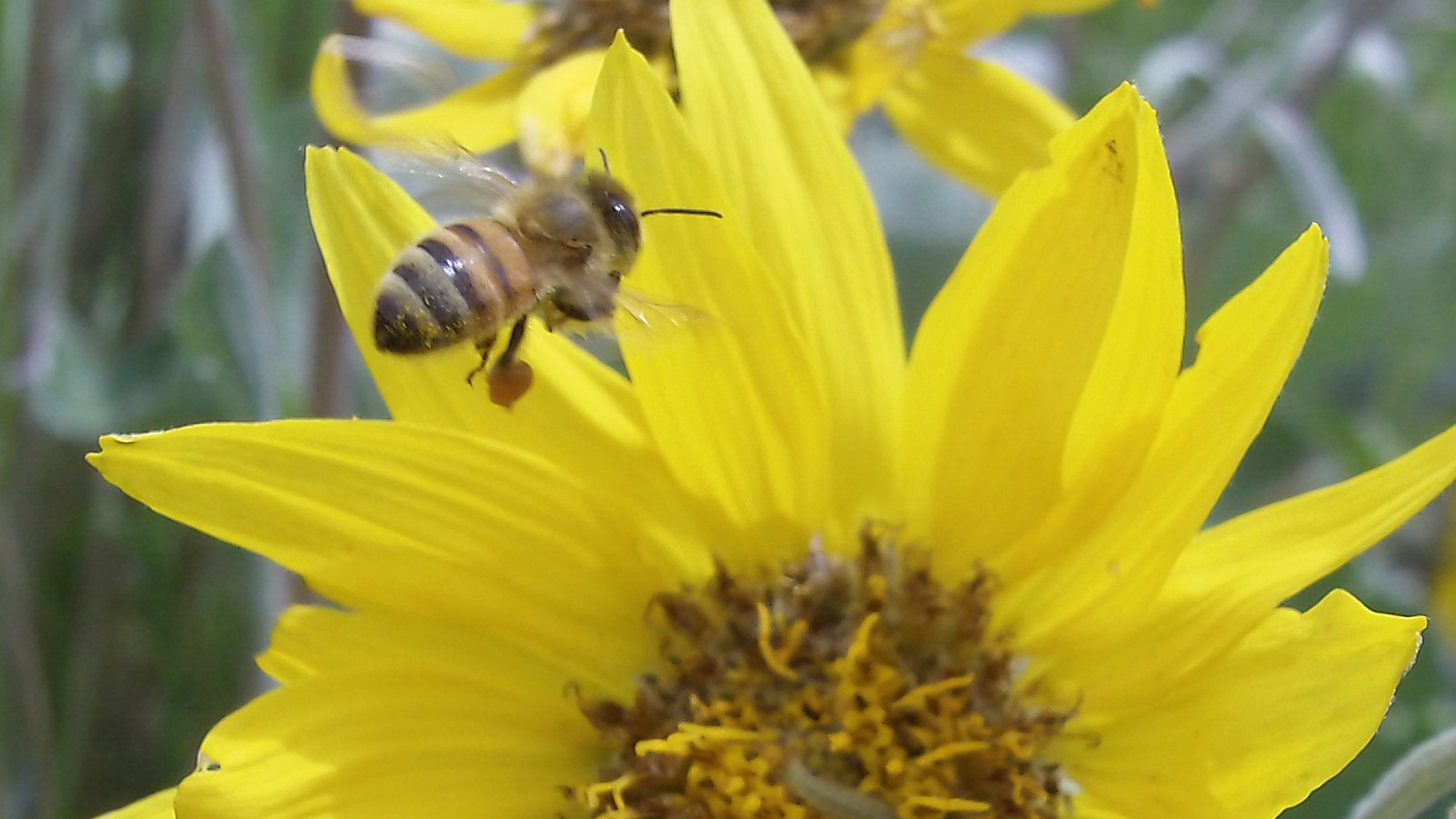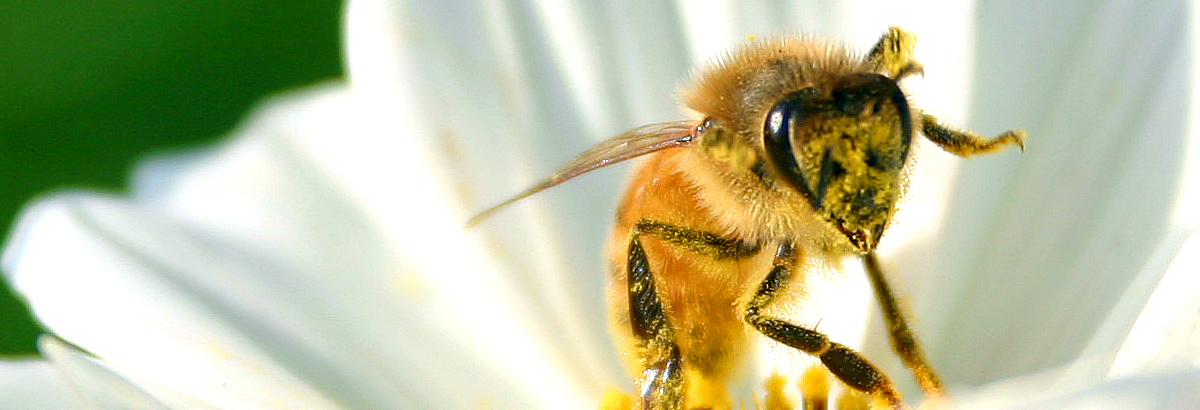Natural Beekeeping - Integrating Honey Bee Ecology into Modern Beekeeping
| Dates | TBA |
|---|---|
| Instructor | Scott Debnam |
| Registration Fee | $275 |
| Location | Course meets fully online. |
Course Description
 This short course teaches a method of beekeeping that is simply for the sake of having honey bees – not keeping them for their products.
This short course teaches a method of beekeeping that is simply for the sake of having honey bees – not keeping them for their products.
Natural Beekeeping demonstrates a beekeeping method that, as best we can, emulates how honey bees live in nature and yet still promotes the practices of trained beekeepers. Keeping honey bees to watch them, enjoying the sounds colonies make, or promoting pollinator presence in your garden are all wonderful reasons to keep bees. Course topics include the natural nest, Langstroth hive modifications, modified colony management techniques, developing resistance to diseases and pests, and management of reproduction. Course syllabus.
This short course is not required for the Master Beekeeping Certificate Program, nor can it be used toward the requirements for the Certificate completion.
The course is structured with weekly topics, discussion forums, assignments, and quizzes. However, there are no scheduled class meeting times when all students need to be logged in and “attending” the course at the same time. Instead, students work on the course at whatever times best fit their schedule. Instructions for logging on to the online course will be sent to registrants during the week before class begins. Participants must have access to an internet-connected computer and should allow for 3-4 hours per week of study time. The course is taught online through Moodle, the University of Montana’s online learning system. View the computer system requirements.
Upon successful completion of the course, 2.0 CEUs (Continuing Education Units) will be awarded and a certificate issued.
The course offers optional academic credit and has been approved for two credits through the University of Montana Division of Biological Sciences as BIOB 277 Natural Beekeeping. Students who opt to take the course for academic credit must pay an additional $135 credit recording fee. Students must be a minimum of age 16 in order to register for the credit section.
Prerequisite
Registration for the Natural Beekeeping course is open to those who successfully completed UM's Apprentice Level Beekeeping Course or to experienced beekeepers who have tested out of our Apprentice course. See "Test out of the Apprentice Level Course" near the bottom of this page.
Required Course Materials
The Lives of Bees: The Untold Story of the Honey Bee in the Wild
Thomas Dyer Seeley, Princeton University Press 2019
ISBN 9780691189383
Available through Amazon and other online retailers.
Is this program for me?
Both hobbyist and commercial beekeepers have taken our courses. To gain the most benefit from the program, students should have entry-level experience with handling bees, an appreciation of the contribution bees provide to our food crops, an awareness of current honey bee health issues that impact bee populations, and be committed to honey bee vitality.
- Students should be able to read, study and write at the college level.
- Students should have an interest in the science of beekeeping.
- Students must be a minimum of age 16.
- Students should be able to allocate enough time for the coursework: at least three hours per week in addition to every hour of class time.
- Students should have or be willing to acquire textbooks, basic beekeeping clothing and equipment. A microscope is required for the Journeyman and Master Level courses.
- Students should have an open mind and be interested in joining a community of informed beekeepers - a network that will serve as a resource for years to come.
- Instruction focuses only on the Langstroth hive. Top-bar and alternative hive designs are not used in this program.
Our Apprentice course is the foundation for all other courses. Experienced beekeepers may begin at a higher level (Journeyman Level or Natural Beekeeping) if they pass UM's Apprentice Level course final exams. To test out of the Apprentice course, participants must achieve an average score of 80% or higher across both online exams, which have been designed to determine Apprentice-Level proficiency.
We suggest reading the Apprentice Level book before attempting the exams:
Storey's Guide to Keeping Honey Bees, 2nd Edition: Honey Production, Pollination, Health
Malcom T. Sanford and Richard E. Bonney, Storey Publishing 2018
ISBN: 9781612129785 (Paperback)
Participants have only one attempt to pass the timed exams. Exams are graded within 10 business days, and participants will be notified of their final score by email. If you receive a passing score, you may register for the next available course (Journeyman Level or Natural Beekeeping) by visiting the program website. If a course is not currently available, you will be notified of future offerings via email.
Course Policies
Beekeeping courses are dependent upon a minimum number of registered students to run. If the minimum enrollment is not met, the course will be cancelled and registrants fully refunded. Courses are limited to a maximum enrollment with registration on a first-come, first-served basis. Once a course is full, students will be added to a waitlist and notified if an opening becomes available.
Registration fees vary by course and full payment is required at the time of registration. If your payment is not received by one week before the course start date, you will be dropped from the course.
Students will receive full refunds for cancellations received up to one week before the course start date. To cancel a course, students should call Student Support Services, (406) 243-6495.
Refunds are generally not provided for cancellations received after a course begins. Please note the University of Montana requires a "Substitute W-9 Form" in order to process refunds for payments made by check. The "Substitute W-9" form requires the student’s Social Security Number.
UM will provide reasonable accommodations for students with disabilities. To request an accommodation, students should contact Student Support Services, (406) 243-6495, at least two weeks before a course starts.
